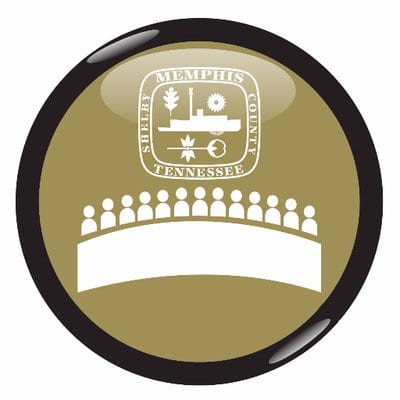A second reading of a resolution to hike Memphis’ property tax rate from $2.71 to $3 per $100 assessed value to fund MATA operating costs and other priorities met a chilly reception this week from members of the Memphis City Council Budget Committee.
“I’m receiving calls … in opposition to a 10 percent increase in the taxes,” said Councilmember Cheyenne Johnson, a former Shelby County Assessor of property, during the Tuesday (Jan. 13) meeting,
Council Chairman Martavius Jones’ proposal to raise the rate drew criticisms from members, who voiced concerns from citizens in their districts.
After much discussion, the proposal was sent to the council’s full meeting without recommendation. The council did not vote on the proposal, which is expected to be on the council’s June 27 agenda.
The city’s budget and tax rate must be set by June 30. The new fiscal year begins July 1.
Under the current $2.71 tax rate, the owner of a home assessed at $150,000 pays $1,016.25 a year in city property taxes or about $84.68 a month on a mortgage.
An increase to $3 for a home assessed at the same value would result in a $1,125 tax bill or $93.75 a month on a mortgage.
“Colleagues, there’s not a business on this planet that just raises their prices without a specific plan (on) where to spend that money,” said Councilmember Frank Colvett, a who is a candidate for Memphis mayor and real estate broker.
“Colleagues, I insist that, if you are going to go down this road, you must explain exactly where you intend to spend this money, exactly what you plan to get out of it and exactly how long it is going to take to achieve your objectives.”
A breakdown of MATA expenses and priorities will likely be provided during a promised briefing by MATA Chief Executive Officer Gary Rosenfeld.
Jones’ proposal also would create an opportunity youth fund. The budgets for Waste Division services and the city’s Affordable Housing trust fund would also be expanded. The remainder would flow into the general services fund.
The tax increase would also shore up a potential budget shortfall of $19 million, which Jones alluded to during his pitch.
“Nine million of that, we will not know until December,” said Jones. “I think having such a proposal, could be a counter to a shortfall in revenue, in addition to addressing some of those needs.”
However, the shoring up of MATA funding is the one item he remains “married to.”
He also opined on a possible increase of 11 cents, raising the property tax rate to $2.82.
Nevertheless, a property tax hike can be a tough sell across the income brackets of homeowners. To fund services such as public transportation, which are less “tangible” to non-riders, is an even tougher sell.
“If you want an increase, make sure the streets are clear; make sure there’s security. Don’t tell me that it’s something you’re working on and down the road, you’ll see it. Right now, people are telling me, it makes a difference. Ten percent is a lot of money, in some cases,” said Johnson.
Now in his final term, it is the second time in two years that Jones has sought to increase MATA’s “barebones” budget.
Mayor Jim Strickland’s proposed $792 million budget for the 2023-24 fiscal year does not include a tax increase. The mayor also is in his final term.
“What has saved our butts has been the sales tax … and the federal dollars. That has saved our tails. Going back to 2008, nearly 70 percent, or 75-76 percent of the funding has gone to police and fire. All the other divisions, over 15 years, have had an increase of about 24 percent of all additional revenues,” warned Jones.
In other action:
*Regarding redrawing district lines for the Oct. 5 City Council elections, the Council rejected a proposal to create a Cordova-centered district. The council, however, approved on second reading a competing ordinance that makes a minimal change of moving a single precinct from one district to another.
*Approved on the first of three readings an August 2024 ballot referendum on stricter gun-control restrictions that defy state laws.
*Approved an honorary street naming for a section of Second Street for the late state Rep. Barbara Cooper.



